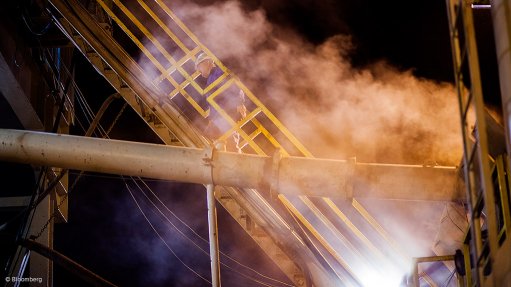
JOHANNESBURG (miningweekly.com) – Australia’s Labor government on Tuesday moved to extend the contentious ‘water trigger’ legislation to shale and tight gas projects.
Introduced in 2013, the water trigger legislation was an amendment to the Environmental Protection and Biodiversity Conservation Act, which sought to protect water resources from coal seam gas (CSG) and large coal mining.
The initial amendment meant that upcoming large coal mine and CSG developments would have to be environmentally reviewed not only at state level, but also at federal level.
While initially introduced to quell community concerns for water resources around coal mining operations, the mining industry felt that the water trigger fostered the anti-industry approach of the then Julia Gillard-led government.
This concern was reinforced with the new proposal on the table, with oil and gas industry body the Australian Petroleum Production & Exploration Association (Appea) expressing concern that an extension of the water trigger would further discourage the investment needed to develop new gas supplies in Australia.
Appea CEO Dr Malcom Roberts on Tuesday highlighted the water trigger as “unnecessary and unjustified”.
“The water trigger was a political fix by the Gillard government to secure Tony Windsor’s vote in 2013. There was no regulatory impact assessment and no evidence that state regulation was deficient. While adding another layer of costly Commonwealth regulation, the trigger did not add any new scientific assessment or evidence,” said Roberts.
He cited the Department of the Environment, which noted that the water trigger had not changed the process followed by mining developments to seek and consider advice from the Independent Expert Scientific Committee.
Roberts maintained that the amendment duplicated state regulation, further commenting on its application to only two industries, as well as the opposition of the resources sector and the National Farmer’s Federation to the amendment.
He also highlighted that the potential impact of unconventional gas developments on water had been “exhaustively assessed” by reputable, independent reviews such as the Australian Council of Learned Academies, the New South Wales Chief Scientist and the Hawke Review.
“The consensus is that, with effective regulation, these projects are low-risk [and] the gas industry’s use of water is far less than [that of] many other industries.”
Roberts noted that the water produced from extracting CSG represented about 0.03% of the water held in the Great Artesian basin, which was much less than the yearly recharge of the basin. Further, 97% of that water was used by farmers and industry, or was returned to aquifers.
“In the Northern Territory, the Hawke review found that a large shale gas industry would use no more water than the water allocated to some individual pastoral properties.
“It is very disappointing that Labor should again play politics with the gas industry. The solution to bad policy is not more bad policy,” said Roberts.
He believed that the trigger served no useful purpose and that, instead of being extended, it should be repealed.